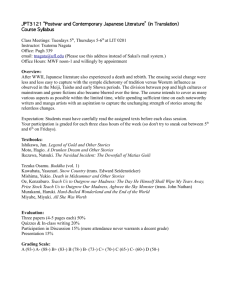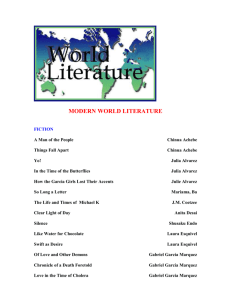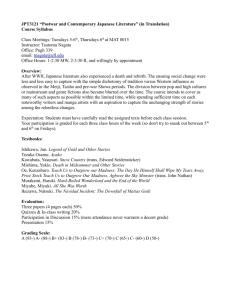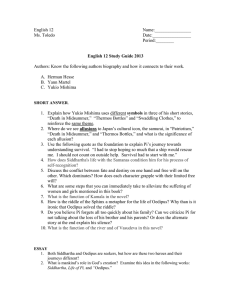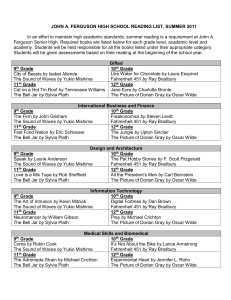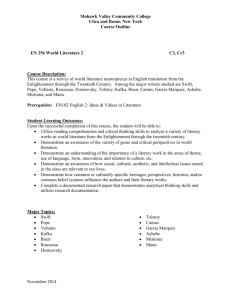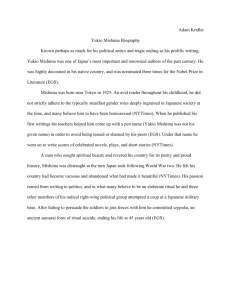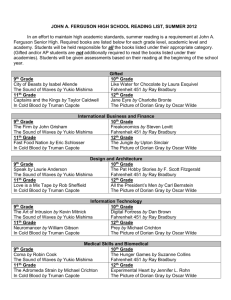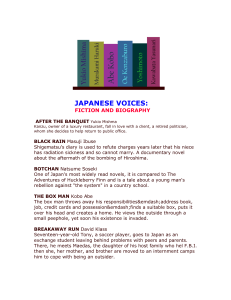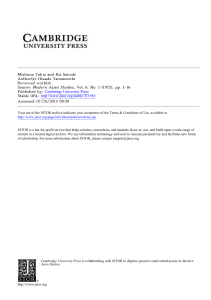CENTENNIAL HONORS COLLEGE Western Illinois University Undergraduate Research Day 2015
advertisement
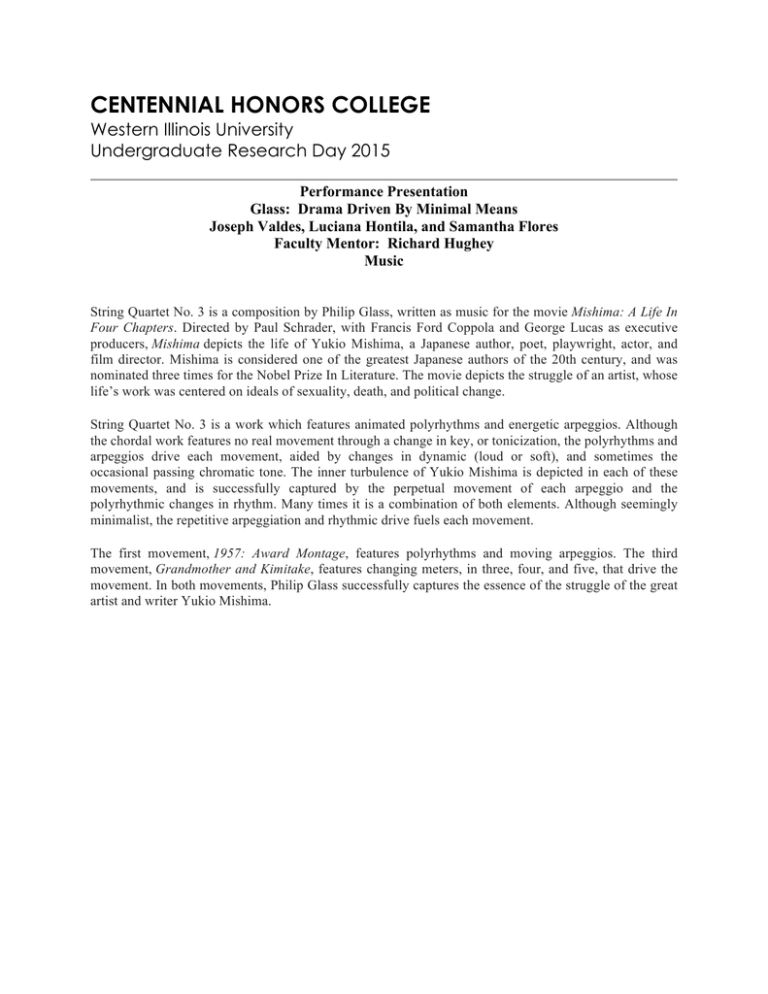
CENTENNIAL HONORS COLLEGE Western Illinois University Undergraduate Research Day 2015 Performance Presentation Glass: Drama Driven By Minimal Means Joseph Valdes, Luciana Hontila, and Samantha Flores Faculty Mentor: Richard Hughey Music String Quartet No. 3 is a composition by Philip Glass, written as music for the movie Mishima: A Life In Four Chapters. Directed by Paul Schrader, with Francis Ford Coppola and George Lucas as executive producers, Mishima depicts the life of Yukio Mishima, a Japanese author, poet, playwright, actor, and film director. Mishima is considered one of the greatest Japanese authors of the 20th century, and was nominated three times for the Nobel Prize In Literature. The movie depicts the struggle of an artist, whose life’s work was centered on ideals of sexuality, death, and political change. String Quartet No. 3 is a work which features animated polyrhythms and energetic arpeggios. Although the chordal work features no real movement through a change in key, or tonicization, the polyrhythms and arpeggios drive each movement, aided by changes in dynamic (loud or soft), and sometimes the occasional passing chromatic tone. The inner turbulence of Yukio Mishima is depicted in each of these movements, and is successfully captured by the perpetual movement of each arpeggio and the polyrhythmic changes in rhythm. Many times it is a combination of both elements. Although seemingly minimalist, the repetitive arpeggiation and rhythmic drive fuels each movement. The first movement, 1957: Award Montage, features polyrhythms and moving arpeggios. The third movement, Grandmother and Kimitake, features changing meters, in three, four, and five, that drive the movement. In both movements, Philip Glass successfully captures the essence of the struggle of the great artist and writer Yukio Mishima.

